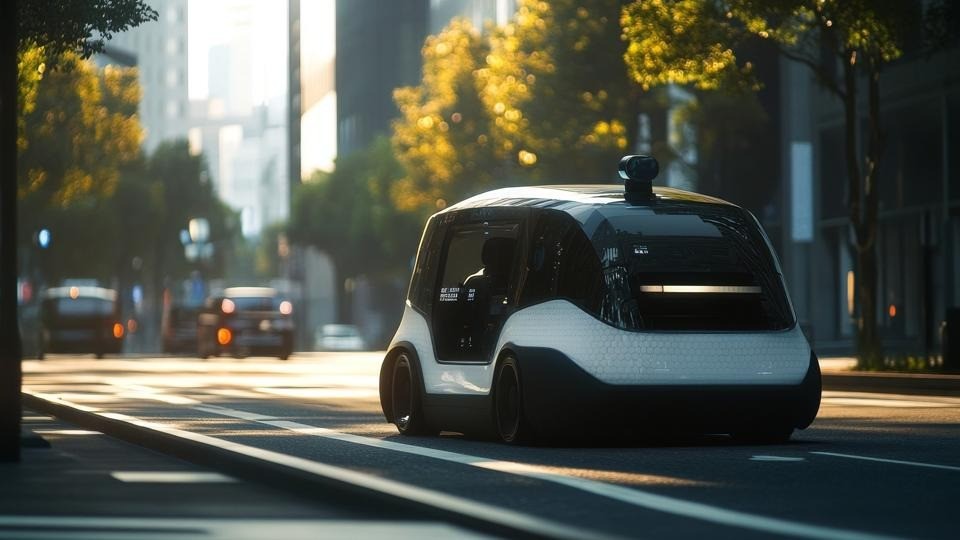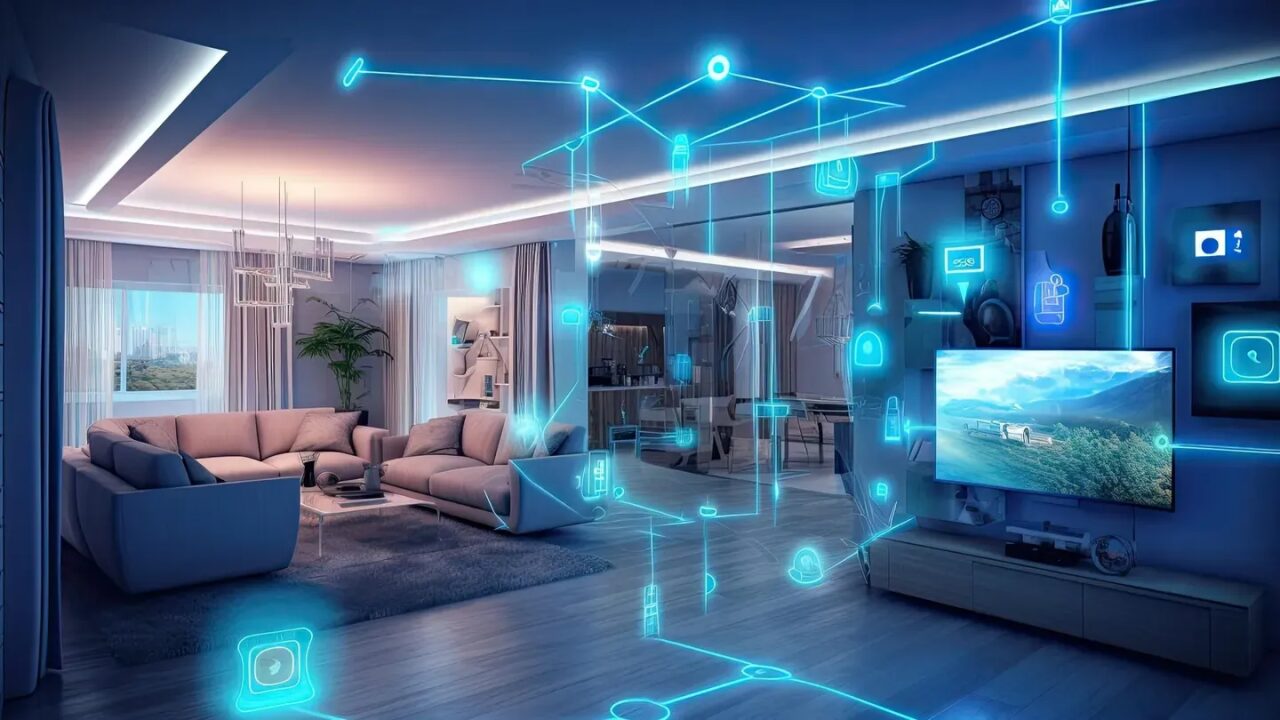Generative AI Is Coming To Your Home Appliances
8 April 2024
Across all industries, organizations are rapidly embracing generative AI. Among them, makers of home appliances like fridges and ovens. Generative AI in your oven? Why not? Ater all, AI has been creeping into our homes for years (think smart lightbulbs and Alexa) – but thanks to generative AI, these interactions will become even more human and more personal.
Imagine, for example, asking your washing machine whether it’s safe to wash a beloved item of clothing on a certain setting – literally, asking it out loud or via an app. Or you could say to your fridge, “Hey, when am I going to run out of milk?” and it’ll tell you. Integrating generative AI into everyday products could lead to a new era of smart appliances that are not only more adaptive to our needs but also more interactive and engaging.
Let’s explore what this looks like in practice.

GE Appliances And The SmartHQ App
Generative AI is the driving force behind GE Appliances’ SmartHQ app, which is designed to make appliances smarter and more personalized. By leveraging large language models – of the sort that power tools like ChatGPT – GE Appliances are finding new ways to delight customers. How? One example is AI-generated recipes via the SmartHQ app. The app’s Flavorly AI feature gives users customized recipes that help to simplify home cooking, save money, and reduce food waste – by analyzing the ingredients the customer already has and generating recipes based on those ingredients. So GE customers can enjoy a cooking experience that is personalized to them.
GE collaborated with Google on the project, and, interestingly, generative AI was also used to create some of the code for the Flavorly AI feature. Among the other ideas being explored by GE are “built-in screens that give cooking and cleaning advice or a more seamless customer experiences.”
Meanwhile, At Samsung…
Samsung is another manufacturer planning to bring generative AI to home appliances. The technology will reportedly be applied to “voice, vision and display,” according to Yoo Mi-young, head of software development in Samsung’s digital appliances division. The idea is that generative AI will enable Samsung products to get a better understanding of how consumers use the products – for example, an oven recognizing what is being cooked in it or a fridge recognizing what ingredients are inside. This could allow appliances to understand users’ needs and respond accordingly.
It’s not yet clear what these features will look like in practice, but potential ideas are ovens that can warn you when something is burning, or fridges that can come up with recipes based on ingredients that need using up.
How Other Manufacturers Are Exploring Generative AI
It’s not just GE Appliances and Samsung who are keen to deploy generative AI. German appliance manufacturer Miele is also incorporating the technology into its Smart Food ID cooking assistance system – initially for large ovens with integrated cameras. The camera takes pictures of the dish, and the AI interprets the picture and suggests the cooking mode automatically. The user just has to confirm, and the oven takes care of the rest. AI will also be used by Miele for appliance diagnostics, to help customers resolve issues when malfunctions occur. One example is a washing machine creating too much foam because the user has added too much detergent – in which case, the AI would recommend the correct amount of detergent for the load mount.
LG is also incorporating AI to help customers use appliances in a better way. LG’s AI can notify users when an issue occurs, such as a decline in refrigerator cooling, before it gets any worse. Issues like this aren’t immediately obvious to the user but could shorten the appliance’s lifespan. The AI can provide quick-fix solutions or schedule an appointment with a service agent. It can also provide routine maintenance suggestions, like running a clean cycle in a washing machine every 30 washes.
Intelligent, Adaptive, Personalized Appliances
In the future, our homes will increasingly be equipped with appliances that can adapt to our personal needs. A washing machine, for example, could adapt to the types of clothes you generally wash (like heavy-duty work clothes that get really dirty) and create customized cycles for optimal fabric care and cleanliness. Similarly, your oven could learn your cooking style and preferences over time, suggesting optimal temperature settings and cooking times for different dishes. (And maybe giving you recipe suggestions, too.)
Plus, generative AI can help with maintenance – even predicting issues before they occur. Instead of waiting for a part to fail, the AI could predict when a component is likely to need replacement or maintenance and send you a preemptive alert. It could potentially even order the necessary parts or schedule a service visit ahead of time. And if an appliance does develop a problem, the AI could generate step-by-step troubleshooting guides, tailored to the exact model and its current conditions.
The bottom line is that manufacturers are reinventing products in new ways with generative AI. We’re only just beginning to see how generative AI could be incorporated into the products of the future.
Related Articles
Flying Taxis And Self-Driving Trucks Arrive In 2026: 6 Transport Trends To Watch
By now, “smart” versions exist of just about every home appliance, gadget and gizmos we can think of. However, manufacturers continue[...]
Technology in Action: My Key Takeaways on How AI and Quantum Are Accelerating Global Transformation
By now, “smart” versions exist of just about every home appliance, gadget and gizmos we can think of. However, manufacturers continue[...]
The 10 Biggest Consumer Technology Trends Of 2026
By now, “smart” versions exist of just about every home appliance, gadget and gizmos we can think of. However, manufacturers continue[...]
8 AI Ethics Trends That Will Redefine Trust And Accountability In 2026
By now, “smart” versions exist of just about every home appliance, gadget and gizmos we can think of. However, manufacturers continue[...]
The 7 Banking And Fintech Trends That Will Define 2026
By now, “smart” versions exist of just about every home appliance, gadget and gizmos we can think of. However, manufacturers continue[...]
The 8 Biggest Healthcare Technology Trends To Watch In 2026
By now, “smart” versions exist of just about every home appliance, gadget and gizmos we can think of. However, manufacturers continue[...]
Sign up to Stay in Touch!
Bernard Marr is a world-renowned futurist, influencer and thought leader in the fields of business and technology, with a passion for using technology for the good of humanity.
He is a best-selling author of over 20 books, writes a regular column for Forbes and advises and coaches many of the world’s best-known organisations.
He has a combined following of 4 million people across his social media channels and newsletters and was ranked by LinkedIn as one of the top 5 business influencers in the world.
Bernard’s latest book is ‘Generative AI in Practice’.










Social Media